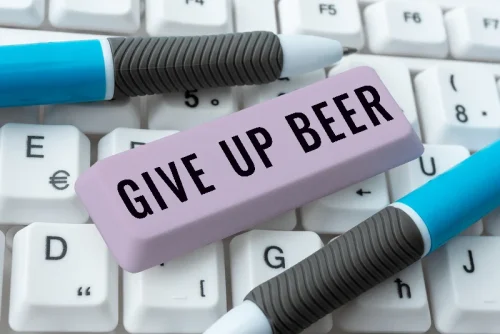If you’re taking a blood thinner, it’s highly likely that ginkgo biloba tea could interact with it and alter its effectiveness. Doctors can prescribe anticoagulant medications, such as heparin and warfarin, when blood is thick and a person has an increased risk of blood clots, stroke, or heart attack. Moderate alcohol use is generally safe while taking most blood thinners. For healthy adults, doctors recommend limiting alcohol intake to a maximum of two drinks a day for males and one drink a day for females. In small doses, alcohol had a blood thinning effect to reduce blood clotting. However, it’s not a viable alternative to prescribed blood thinners.
Is alcohol good for blood pressure in small amounts?
Luckily, alcoholics who quit drinking see a reduction in blood pressure. Often those who come to treatment with high blood pressure return to normal levels within a month of not drinking. Some people may initially follow these recommendations but become tempted to increase their alcohol intake over time. In small amounts, alcohol can act as an anticoagulant, reducing blood’s ability to clot and causing it to start thinning.
How to Thicken Blood After Drinking Alcohol
Based in NYC, she also remains heavily involved in dance and performs in local choreographers’ work. Unfortunately, “the patient rapidly developed multiorgan failure,” and surgery could not be pursued due to his unstable condition. “His treatment was transitioned does alcohol thin blood to palliative care and he died on the 60th hospital day,” the case report authors wrote. The man had been discharged from the ICU after about a month in the hospital and was undergoing rehabilitation in the general ward while taking the probiotic.
What to know about blood thinners and alcohol
In low to moderate alcohol consumption, antioxidants may provide some cardiovascular benefits. Blood thinners are medications given to people with a high risk of dangerous levels of blood-clotting. The body needs blood to clot to prevent too much blood loss, but clotting that’s extreme can lead to blockages in arteries and blood vessels that cut off blood flow, leading to dangerous health issues. Short- and long-term alcohol use has different effects on the blood.
These cells are sticky and cluster together and work to stop bleeding. Platelets also deliver proteins called clotting factors that create a plug to close a wound. Experts suggest moderate alcohol consumption is generally safe while taking blood thinners. Increased autophagy as a possible mechanism underlying the adverse myocardial effects of ethanol is intriguing. This is especially true in light of the relationship between a sensor of stress (mTOR) and nutrient deprivation and how essential autophagy is to cell survival.
Other Health Risks
- They also had lower levels of circulating inflammatory markers, such as C-terminal proendothelin-1 and pentraxin-3 (Cosmi et al. 2015).
- For most states in the United States, the alcohol limit to legally drive a vehicle for drivers aged 21 or older is currently 0.08% BAC.
- There, he teaches and works with cardiovascular and medical trainees as well as medical students.
- This article explains the safety and effects of drinking alcohol while using blood thinners.
- Corticosteroids, such as prednisone, can help slow down platelet destruction.
This may increase your risk of aspiration (inhaling vomit), which can be potentially fatal. For your own safety and well-being, it’s best to avoid alcohol for at least 48 hours before your scheduled surgery. If you or someone you know drinks alcohol, it is important to bring intention to the quantity that you consume, with knowledge of what is considered heavy or risky alcohol use. Safe drinking behavior usually involves drinking no more than 1-2 drinks per session, only drinking a few times a week, and drinking beverages you enjoy rather than beverages that get you tipsy or drunk faster.
- The women’s metabolic measurements were then taken over the next 6 hours.
- As your blood alcohol concentration (BAC) rises, so does your loss of ability.
- Alcohol affects the body’s ability to form blood clots, which are essential for stopping bleeding when an injury occurs.
- The effects of alcohol consumption on blood pressure and heart rate can last up to 13 hours after drinking, and its effects on heart rate can last up to 24 hours after drinking.
By reducing the likelihood that these blood cells will stick together and form a clot, alcohol may then “thin” the blood and help to prevent cardiac complications. Acting as a blood thinner, alcohol can then also lower the risk for a stroke, which is when there is a reduced flow of blood to the brain due to blocked or narrowed arteries. Drinking alcohol in moderation may have a protective effect on your blood vessels. Some research finds that alcohol increases levels of high-density lipoproteins (HDL, aka “good cholesterol”). This healthy type of cholesterol helps protect your arteries and prevent the blood clots that can lead to heart attacks and strokes.




